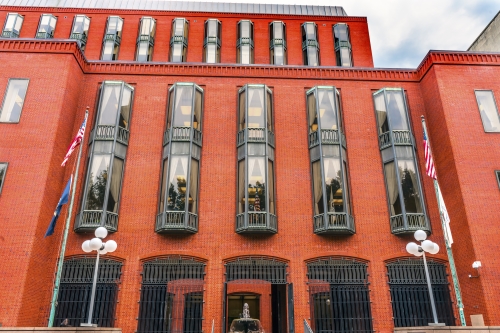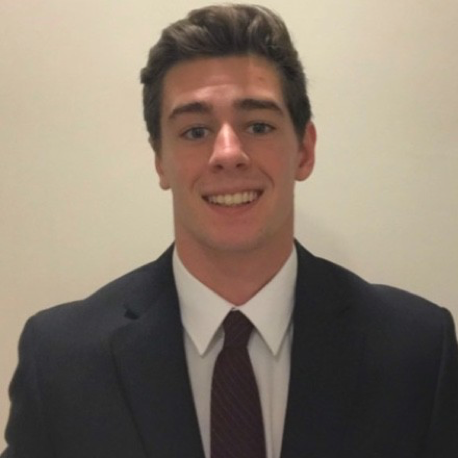“[T]he Supreme Court made clear that we lack the power that we thought we had in Bennett I to review (and overrule) the Board’s determination that the IPR was not time barred.”
 On May 13, the United States Court of Appeals for the Federal Circuit dismissed Bennett Regulator Guards, Inc.’s (Bennett) challenge of a Patent Trial and Appeal Board (PTAB) decision to vacate the institution of an inter partes review (IPR), citing a lack of jurisdiction, since the PTAB’s decision was based in part on its reconsideration of whether the petitioner was time barred from petitioning for IPR under 35 U.S.C. § 315(b). Judge Pauline Newman dissented.
On May 13, the United States Court of Appeals for the Federal Circuit dismissed Bennett Regulator Guards, Inc.’s (Bennett) challenge of a Patent Trial and Appeal Board (PTAB) decision to vacate the institution of an inter partes review (IPR), citing a lack of jurisdiction, since the PTAB’s decision was based in part on its reconsideration of whether the petitioner was time barred from petitioning for IPR under 35 U.S.C. § 315(b). Judge Pauline Newman dissented.
PTAB Rulings
Bennett is the assignee of U.S. Patent No. 5,810,029 (the ‘029 patent), which is directed to “an anti-icing device for a gas pressure regulator.” In 2012, Bennett sued Atlanta Gas Light Company, alleging infringement of the ‘029 patent. The infringement suit was dismissed for lack of personal jurisdiction, and on July 18, 2013, Atlanta Gas filed an IPR petition seeking review of the ‘029 patent. The IPR was instituted, however, a final decision on the merits was never issued. Instead, the Board vacated the institution decision and terminated the IPR, citing Atlanta Gas Light’s failure to list all real parties-in-interest in its petition, as required by 35 U.S.C. §312(a)(2). Specifically, the Board took issue with Atlanta Gas not listing its parent company, AGL Resources. The decision to vacate the institution of the IPR was not appealed.
Following the termination of the first IPR, Atlanta Gas elected to file a second IPR petition on February 27, 2015, again challenging the ‘029 patent on essentially the same unpatentability grounds. However, “out of an abundance of caution,” Atlanta Gas, in its second IPR petition, listed AGL Resources as “in privity.” The Board instituted the second IPR and in August 2016, it issued a final written decision on the merits. Throughout the course of the second IPR, Bennett argued that the petition was time barred under 36 U.S.C. §315(b). However, the Board disagreed, reasoning that because the district court dismissed the action without prejudice, the Board should treat the complaint as though it never existed.
After the Board issued its final written decision regarding the second IPR, Bennett learned of a merger involving AGL Resources that had not been disclosed to the Board. After learning of the merger, the Board ordered Atlanta Gas to file an updated mandatory notice listing all real parties-in-interest. Atlanta Gas complied with the order, but Bennett nonetheless moved for sanctions, urging the Board to terminate the IPR proceedings and award Bennett compensatory damages and attorney fees. The Board agreed with Bennett that sanctions were warranted but limited the scope of sanctions to the “costs and fees incurred between the final written decision and the sanctions decision. In response, Bennett filed a motion detailing its costs for the period at issue, which Atlanta Gas filed an opposition to. Both parties appealed prior to the Board’s final determination regarding sanctions.
Bennett I & II
On the first appeal, the CAFC disagreed with the Board’s understanding of §315(b), which reasoned that the one-year window to file an IPR petition reset when a complaint was dismissed without prejudice. Citing Click-To-Call, then-binding precedent, the CAFC held that Atlanta Gas’s IPR petition was time barred since it was filed more than a year after Atlanta Gas was served with a complaint alleging patent infringement. Click-To-Call Technologies, LP v. Ingenio, Inc., 899 F.3d 1321 (Fed. Cir. 2018). Accordingly, the CAFC vacated the Board’s decision and remanded the case without ruling on the alleged unpatentability of claims in the ‘029 patent.
Before the Board acted on remand, the Supreme Court issued its opinion in Thryv, holding that the Board does not have jurisdiction to review the Section 315(b) time bar, in view of the appeal bar in 35 U.S.C. §314(d). Thryv, Inc. v. Click-to-Call Technologies, LP, 140 S. Ct. 1367, 1373 (2020). Accordingly, the CAFC recognized that “the Supreme Court made clear that we lack the power that we thought we had in Bennett I to review (and overrule) the Board’s determination that the IPR was not time barred.”
In Bennett II, on remand from the Supreme Court, the CAFC considered the merits of the patentability determination. The CAFC affirmed the Board’s determinations of unpatentability for all claims of the ‘029 patent and remanded the case to the Board to “further consider the order and quantify any sanctions.” On remand from the CAFC, the Board vacated its institution decision, terminated the proceeding due to the policy change at the U.S. Patent and Trademark Office (USPTO) regarding time bars, and declined to grant monetary sanctions. Specifically, the new policy “treats the service of a complaint on a petitioner…as starting the time-bar clock, regardless of whether the district court action was subsequently dismissed without prejudice.” Atlanta Gas appealed, asserting the CAFC has review authority pursuant to 28 U.S.C. §1295(a)(4).
CAFC: No Jurisdiction if it Involves Time-Bar
In its most recent appeal, Atlanta Gas argued that the Board abused its discretion in terminating the proceeding on remand as a sanction that the Board’s decision violates the CAFC’s decision in Bennett II. Atlanta Gas argued that the Board’s final sanctions decision was reviewable pursuant to 28 U.S.C. §1295(a)(4)(A). In response, Bennett contended that the CAFC lacks the jurisdiction to hear the case pursuant to Section 314(d) in view of the Supreme Court’s decision in Thryv. The CAFC reasoned that it lacked the appropriate jurisdiction for review, noting that the Board’s decision to terminate the proceeding was based on a “holistic evaluation of multiple considerations, including time-bar issues and the development of Office policy.” Citing GTNX, the CAFC recognized that “[t]he Board retains the inherent authority to reconsider its decisions.” GTNX, Inc. v. INTTRA, Inc., 789 F.3d 1309, 1313 (Fed. Cir. 2015). Accordingly, because the Board’s decision to vacate institution of the IPR was based, at least in part, on the time-bar issue, the CAFC determined that it lacked jurisdiction to review the sanctions determination, which it would have had if “the Board’s decision was purely a sanctions decision.”
Atlanta Gas also argued that any portions of the Board’s decision that were not focused on the narrow issue of “quantifying its sanction award” violate the CAFC order in Bennett II. Specifically, Atlanta Gas asserted that “the Board’s termination ha[d] the effect of reversing [the] determination in Bennett II—which affirmed the unpatentability of the claims of the ‘029 patent—rendering [the] opinion merely advisory.” However, the CAFC was unpersuaded, reasoning that “reversing” the decision in Bennett II, would have required the Board to disagree with the unpatentability determination, which there is no indication of. Further, the CAFC noted that the Bennett II opinion did not bar the Board from reconsidering its position on the time-bar issue. According to the CAFC, on remand, the Board permissibly acted to reconsider the time bar in view of the newly decided Thryv decision. Therefore, the CAFC determined that the Board’s decision to vacate institution of the IPR did not violate the decision in Bennett II.
Newman’s Dissent
Judge Newman declined to join the majority opinion, reasoning that the CAFC had jurisdiction to review the case. Judge Newman, citing Thryv, underscored the fact that the Supreme Court “did not hold that all time-bar determinations under 35 U.S.C. §315(b) are unappealable; the Court held that ‘institution’ decisions containing time-bar issues are unappealable because they relate to institution.” Thryv, 140 S. Ct. at 1370. Judge Newman further explained that “[t]he Federal Circuit plainly has routine appellate jurisdiction over the PTAB’s award of sanctions.” Judge Newman raised concern that the CAFC’s denial of appellate review in this instance authorizes the Board “to vacate [Board] final decisions at any time, here restoring the ‘029 patent to validity despite the Federal Circuit’s affirmance of invalidity.” By denying review, Judge Newman reasoned that the CAFC neglected its jurisdictional duty and left the ‘029 patent in a state of limbo. Accordingly, Judge Newman dissented, urging the court to accept jurisdiction for appeal.

![[IPWatchdog Logo]](https://ipwatchdog.com/wp-content/themes/IPWatchdog%20-%202023/assets/images/temp/logo-small@2x.png)

![[[Advertisement]]](https://ipwatchdog.com/wp-content/uploads/2024/04/Patent-Litigation-2024-banner-938x313-1.jpeg)
![[Advertisement]](https://ipwatchdog.com/wp-content/uploads/2024/04/Artificial-Intelligence-2024-REPLAY-sidebar-700x500-corrected.jpg)
![[Advertisement]](https://ipwatchdog.com/wp-content/uploads/2024/04/UnitedLex-May-2-2024-sidebar-700x500-1.jpg)
![[Advertisement]](https://ipwatchdog.com/wp-content/uploads/2024/04/Patent-Litigation-Masters-2024-sidebar-700x500-1.jpg)

![[Advertisement]](https://ipwatchdog.com/wp-content/uploads/2021/12/WEBINAR-336-x-280-px.png)
![[Advertisement]](https://ipwatchdog.com/wp-content/uploads/2021/12/2021-Patent-Practice-on-Demand-recorded-Feb-2021-336-x-280.jpg)
![[Advertisement]](https://ipwatchdog.com/wp-content/uploads/2021/12/Ad-4-The-Invent-Patent-System™.png)






Join the Discussion
No comments yet.